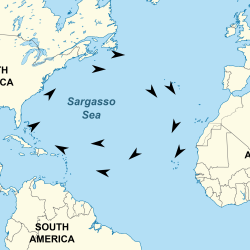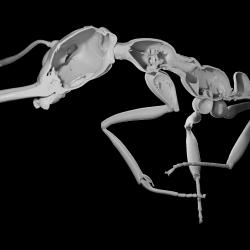Amitabh Varshney Appointed to Second Term as Dean of UMD’s College of Computer, Mathematical, and Natural Sciences
Amitabh Varshney, a prominent computer scientist who has served as dean of the University of Maryland’s College of Computer, Mathematical, and Natural Sciences (CMNS) since 2018, has been appointed to a second five-year term as dean, effective July 1, 2023.

In a message to the UMD community, Senior Vice President and Provost Jennifer King Rice praised Varshney for his many accomplishments during his first term following a comprehensive review.
“Dean Varshney’s review indicated a great level of satisfaction in his leadership and ability to foster excellence in the teaching, scholarship, and service activities in the college,” Rice said in her message.
Rice went on to say that Varshney has her full support and that she is confident that the CMNS community will continue its upward trajectory with Varshney as its leader.
“During my second term, I will sustain the momentum of the new programs I created during my first term and continue to build on the college’s strengths as a global leader in education and research in the sciences,” Varshney said. “Key goals for the next five years include developing a new strategic plan for the college, advancing faculty excellence, and building and enhancing our education and research programs in areas like climate change and artificial intelligence.”
As dean, Varshney will continue to lead the university’s largest college, which educates more than 8,300 students each year in its undergraduate and graduate programs and employs more than 1,000 faculty members and nearly 300 staff members.
Over the past five years, Varshney followed through on the priorities he announced when he became dean, which included supporting existing academic programs, creating new and meaningful academic offerings for CMNS students, catalyzing new research partnerships, and enhancing the college’s community-building efforts. These priorities also aligned with the pillars of the university’s new strategic plan, Fearlessly Forward: In Pursuit of Excellence and Impact for the Public Good.
We Reimagine Learning
Varshney led the development and implementation of several new educational programs in CMNS, including new undergraduate majors in neuroscience (joint with the College of Behavioral and Social Sciences) and immersive media design (joint with the College of Arts and Humanities). He also launched the Science Academy, which offers graduate programs for working professionals and responds to the changing needs for lifelong learning. Program areas include data science and analytics, machine learning (joint with the Clark School of Engineering), bioinformatics and computational biology, and quantum computing (joint with the Clark School of Engineering).
CMNS awarded 8,176 bachelor’s degrees, 648 master’s degrees and 815 doctoral degrees between 2018 and 2022. Consistent achievement in academic programming and in research funding helped 16 CMNS programs and specialties maintain top-25 U.S. News & World Report rankings for undergraduate and graduate programs.
We Partner to Advance the Public Good
Varshney’s ability to foster collaborations extends beyond UMD. He helped strengthen state partnerships through the University of Maryland Institute for Health Computing in Montgomery County, Maryland; the Maryland Mesonet project; Terrapin Teachers; and a pilot program with Prince George’s County Public Schools to teach Calculus I to high school students (joint with the College of Education).
He also led the college in securing over $630 million in cooperative agreements with federal partners that include:
- NASA (Center for Research and Exploration in Space Science & Technology II, Earth System Science Interdisciplinary Center and Small Bodies Node of NASA’s Planetary Data System)
- National Institute of Standards and Technology (Joint Quantum Institute, Joint Center for Quantum Information and Computer Science, and Professional Research Experience Program)
- National Institutes of Health (NCI-UMD Partnership for Integrative Cancer Research)
- National Oceanic and Atmospheric Administration (Earth System Science Interdisciplinary Center’s Cooperative Institute for Satellite Earth System Studies)
We Take on Humanity’s Grand Challenges
On campus, Varshney helped launch new research institutes and centers to take on humanity’s grand challenges, including the Brain and Behavior Institute, Brin Mathematics Research Center, Center for Machine Learning, Institute for Health Computing and the Quantum Technology Center (joint with the Clark School of Engineering). Construction of new facilities to enhance learning and research includes the Brendan Iribe Center for Computer Science and Engineering, a new Chemistry Building, and new space in the Atlantic Building.
In addition, 16 CMNS projects received inaugural UMD Grand Challenges Grants. Representing nine departments and five research institutes and centers in the college, these projects aim to address climate change, human health and disease, artificial intelligence, and inclusion in STEM.
We Invest in People and Communities
Highlighting faculty and student achievements has been a hallmark of Varshney’s tenure. Since 2018, seven faculty members were elected to the National Academies, two to the American Academy of Arts and Sciences, and 11 to the American Association for the Advancement of Science. On campus, 13 were named Distinguished University Professors and eight were named Distinguished Scholar-Teachers. Under Varshney’s leadership, the college hired 84 faculty members and created or filled 20 endowed faculty positions.
Many CMNS students take advantage of opportunities to study with the university’s faculty experts in the classroom and in research labs, which brings them recognition as well. Since 2018, 96 students received National Science Foundation Graduate Research Fellowships, 18 were named Goldwater Scholars, five were named Churchill Scholars, two were named Fulbright Scholars and one was named a Marshall Scholar.
Under Varshney’s leadership, the college made several key advances toward strengthening diversity, equity and inclusion—including the 2020 launch of the CMNS Diversity and Inclusion Advisory Council and the 2023 hiring of the college’s first assistant dean for diversity and strategic initiatives.
As dean, Varshney also spent time meeting with alums and friends of the college to support the university’s Fearless Ideas fundraising campaign. Over the past five years, CMNS raised over $116 million for faculty support, facilities, research and student support. New funding to support students and postdocs includes the Neil Gehrels Prize Postdoctoral Fellowship program in astronomy; the Heising-Simons Foundation’s 51 Pegasi b Fellowship for postdocs in astronomy, atmospheric and oceanic science, and geology; the Herbert A. Hauptman Fellows program for mathematics graduate students; a geology senior thesis program endowment; and dozens of Maryland Promise Scholarships.
About Dean Varshney
An expert in computer visualization, Varshney explores applications of high-performance computer graphics and visualization in science, engineering, medicine and the arts. His research also involves virtual and augmented reality, an emerging field that could revolutionize education, health care, public safety, and the visual and performing arts. Varshney is an elected fellow of IEEE, a recipient of the IEEE Technical Achievement Award and a director of the IEEE Visualization and Graphics Technical Committee.
Varshney came to UMD in 2000 as an associate professor of computer science with a joint appointment in the University of Maryland Institute for Advanced Computer Studies (UMIACS). Varshney served eight years as director of UMIACS and was twice the university’s interim vice president for research. He received a B. Tech. in computer science and engineering in 1989 from the Indian Institute of Technology, Delhi, and an M.S. and Ph.D. in computer science from the University of North Carolina at Chapel Hill, in 1991 and 1994, respectively.







